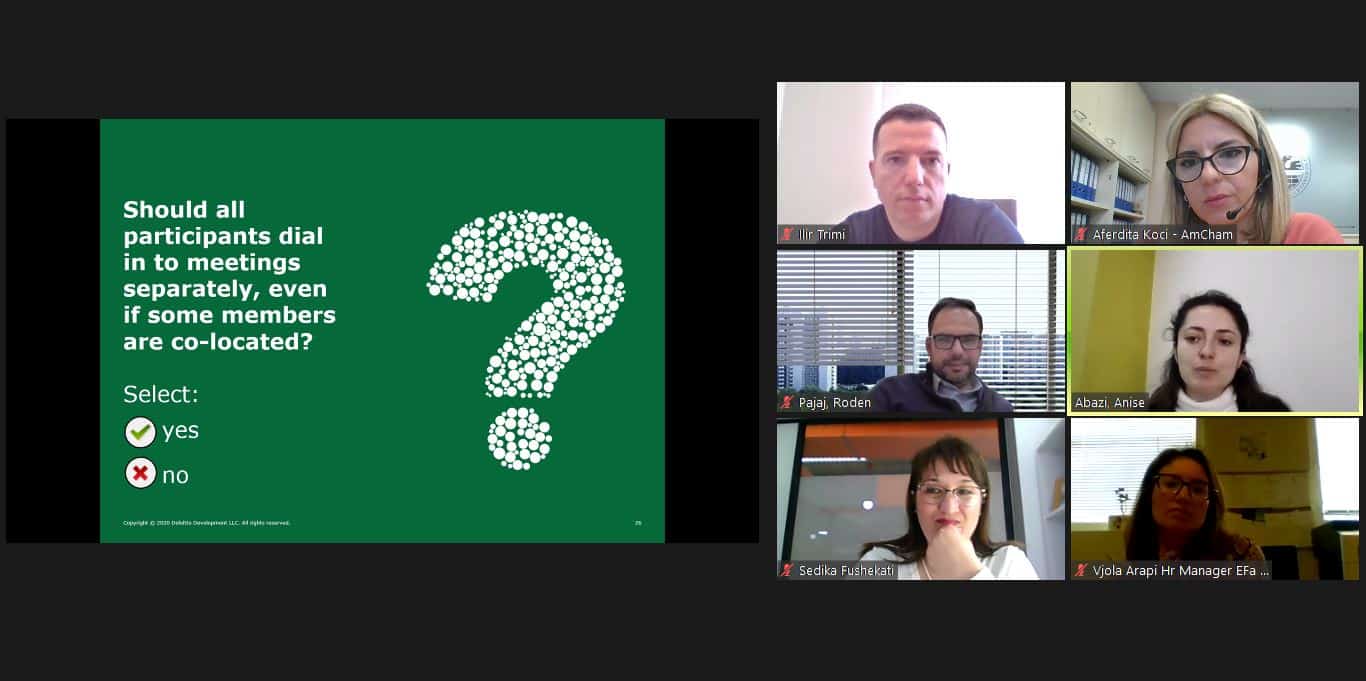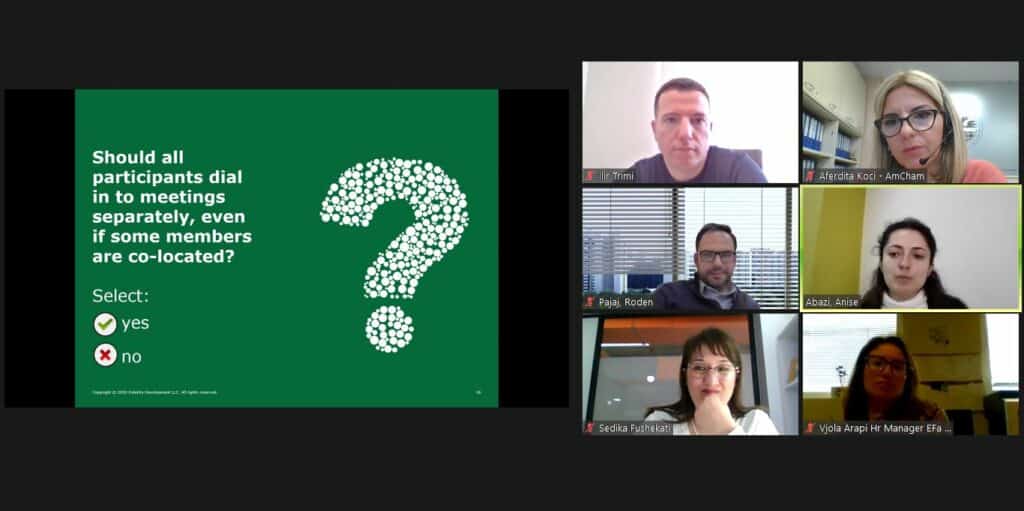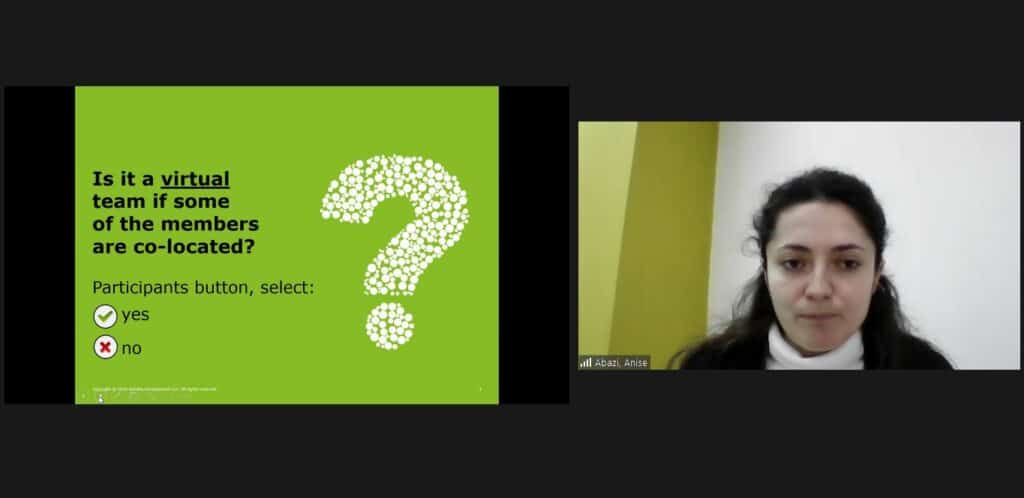Coming together in a virtual environment: How companies benefit
The pandemic situation and the resulting increase in remote work has meant that the office can be anywhere. Staff members have discovered how to use remote work to communicate in real time and maintain a proper level of productivity. Virtual teams and remote work have had some positive effects — but there are problems too. Managing challenges and using best practices in remote work were issues discussed by Anisa Abazi and Roden Pajaj, experts with Deloitte.
“A group of people working from different geographical locations and who rely on technology to communicate and come together to achieve a common goal” — that’s how Mr. Pajaj defined the virtual team.
Speaking to AmCham members, Mr. Pajaj explained that there are several critical factors in the success of a virtual team. Managers need to be careful in building a staff that has constant communication and builds consistent relationships based on predetermined rules. Managers must also be very careful to manage conflicts that arise during work in a timely manner.
Speaking about best practices in organizing work with virtual teams, Mr. Pajaj and Ms. Abazi explained that the basis of a stable relationship is the establishment of some basic rules. Among the many rules and protocols that can apply to remote work, experts mentioned setting clear work schedules, using the right technology, delegation of tasks, etc.
Having precise definitions on roles and responsibilities of each staff member is very important in the management of remote work. Managers need to be clear in defining the tasks of team members and monitor the work for follow-up. To properly run a company, it is important that the leader communicates and gives confidence to the staff on the assigned tasks. To achieve that, managers need to cooperate with the team, encourage team members to take the necessary risks and allow for open communication to share information among team members, which helps in making quality decisions.








